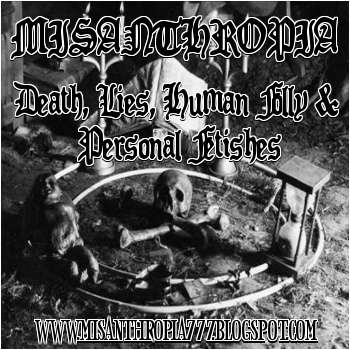By STEVEN ERLANGER
Published: October 27, 2009
PARIS — The French branch of the Church of Scientology was convicted of fraud and fined nearly $900,000 on Tuesday by a Paris court. But the judges did not ban the church entirely, as the prosecution had demanded, saying that a change in the law prevented such an action for fraud. The church said it would appeal.
The verdict was among the most important in several years to involve the group, which is regarded by the Internal Revenue Service as a religion in the United States but has no similar legal protection in France. It is considered a sect here, where it says it has some 45,000 adherents, out of what the church claims is some 12 million worldwide. It was the first time here that the church itself had been tried and convicted, as opposed to individual members.
The case was brought by two former members who said they were pushed into paying large sums of money in the 1990s, pressed to sign up for expensive “purification courses” and harassed to buy a variety of vitamins and other forms of pharmaceuticals, plus electronic tests to measure spiritual progress. One woman said she had been pressed into spending more than $30,000.
The major fines were rendered against the Scientology Celebrity Center in Paris and a Scientology bookstore. Six group leaders were convicted of fraud, with four given suspended sentences of 10 months to two years. One of them, the group’s leader in France, Alain Rosenberg, was given a two-year suspended sentence and fined $44,700. Two others were given only fines, of $1,490 and $2,980.
The judges said the individuals had avoided jail in part because of efforts by the church “to change its practices.”
There have been other cases brought against individual Scientologists in France, but this was the first time the organization was charged for its methods of functioning.
“This is a historic decision,” said Olivier Morice, a lawyer for the plaintiffs. “It’s the first time in France that the entity of the Church of Scientology is condemned for fraud as an organized gang.” He said that the tribunal “expressed its will to maintain the structure of Scientology in order to make it easier to control,” adding that “it gave this decision a national and international dimension so that potential victims can be warned of the methods of Scientology.”
Catherine Picard, who runs an association to help victims of sects, called the verdict “subtle enough and intelligent,” saying that it would help control Scientology in France, and expressed the hope that the state would be “more vigilant.” She said that “Scientology can no longer hide behind freedom of conscience.”
A spokeswoman for the church, Agnès Bron, called the verdict “an Inquisition for modern times.”
The Church of Scientology is based in Los Angeles. It was founded in 1954 by the writer L. Ron Hubbard. Belgium, Germany and other European countries have been formally criticized by the State Department for labeling Scientology a cult or sect and enacting laws to restrict its operations. After a 25-year battle, the Internal Revenue Service reversed itself in 1993 and agreed to grant the group tax-exempt status as a church.
In June, The St. Petersburg Times in Florida reported as part of a major investigation that the longtime head of Scientology, David Miscavige, ruled the church through a “culture of intimidation and violence,” including physical assaults on his aides. Last week, the ABC News program “Nightline” broadcast a two-part series reviving those allegations and interviewing former church executives who said they had quit after being beaten by Mr. Miscavige. Scientology has denied that Mr. Miscavige attacked any of his staff members.
Wednesday, October 28, 2009
Subscribe to:
Post Comments (Atom)











 "He who can, does. He who cannot, teaches."
"He who can, does. He who cannot, teaches."



 "Being is substance and life; life manifests by movement; movement is perpetuated by equilibrium; equilibrium is therefore the law of immortality.
"Being is substance and life; life manifests by movement; movement is perpetuated by equilibrium; equilibrium is therefore the law of immortality.


 "The doctrine of equality!... But there exists no more poisonous poison: for it seems to be preached by justice itself, while it is the end of justice.... "Equality for equals, inequality for unequals" that would be the true voice of justice: and, what follows from it, "Never make equal what is unequal."
"The doctrine of equality!... But there exists no more poisonous poison: for it seems to be preached by justice itself, while it is the end of justice.... "Equality for equals, inequality for unequals" that would be the true voice of justice: and, what follows from it, "Never make equal what is unequal."



No comments:
Post a Comment
Note: Only a member of this blog may post a comment.